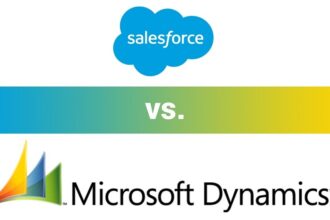Web Science: An Interdisciplinary Approach to Understanding the Web
I’m not a big fan of the engineering metaphor for my job. I’ve long thought that it’s much too limiting. The complexity of the systems I work with keeps exceeding the limits of everyone’s expectations — slipping the bonds of “engineering”. Every time I hear somebody talking about “repeatability”, or “rigour”, waxing enthusiastic about some form of formal method, or (auto)generating some system from some abstraction / model, I think of Bertrand Russell. I think of him feverishly slaving away to trap all of the complexity of mathematics into a coherent, logical system. And then I think of Kurt Gödel, proving for all time that there can never be any such thing.
Despite that sobering truth, life somehow muddles on, producing systems of astonishing complexity and robustness. Therein lies an important insight, I have long thought — biological systems are excellent examples of how to build systems in general. That, in turn, ought to mean that biology, not engineering, is a much more fruitful metaphor (if we must have one, and if you’ll excuse the awful pun) for designing and building computer-assisted info…
Web Science: An Interdisciplinary Approach to Understanding the Web
I’m not a big fan of the engineering metaphor for my job. I’ve long thought that it’s much too limiting. The complexity of the systems I work with keeps exceeding the limits of everyone’s expectations — slipping the bonds of “engineering”. Every time I hear somebody talking about “repeatability”, or “rigour”, waxing enthusiastic about some form of formal method, or (auto)generating some system from some abstraction / model, I think of Bertrand Russell. I think of him feverishly slaving away to trap all of the complexity of mathematics into a coherent, logical system. And then I think of Kurt Gödel, proving for all time that there can never be any such thing.
Despite that sobering truth, life somehow muddles on, producing systems of astonishing complexity and robustness. Therein lies an important insight, I have long thought — biological systems are excellent examples of how to build systems in general. That, in turn, ought to mean that biology, not engineering, is a much more fruitful metaphor (if we must have one, and if you’ll excuse the awful pun) for designing and building computer-assisted information systems.
In my second citation of CACM today (this issue is really quite good!), I’ve linked above to an excellent article, co-authored by James Hendler, Nigel Sahdbolt, Wendy Hall, Tim Berners-Lee and Daniel Weitzner, that resonated with me for many reasons. First off, having just recently attended the Enterprise 2.0 conference in Boston, and been puzzled by the lack of a holistic approach to all of the issues that I think are correlated with that buzzword, I find I’m not the only one to think such things. Second, for reasons that (I hope) will become obvious if you read the piece, my musings about biology vs. engineering are quite relevant to some of the things these authors talk about. With regard to the first point, Figure One in the article is a great picture of the interdependence of the “web” of the Web’s architecture, and would serve as a perfectly adequate A/V aid for the kind of discussion Lee Bryant and I were having on the Headshift blog. With regard to the second point, consider the following quote from the article:
Where physical science is commonly regarded as an analytic discipline that aims to find laws that generate or explain observed phenomena, CS (sic. Computer Science) is predominantly (though not exclusively) synthetic, in that formalisms and algorithms are created in order to support specific desired behaviors. Web science deliberately seeks to merge these two paradigms. The Web needs to be studied and understood as a phenomenon but also as something to be engineered for future growth and capabilities,
Heh. That description fits the biology of genetics — say, gene splicing — like a glove. In fact, in a parallel that draws a hearty “lol” from me, in my current frame of mind, biologists sometimes refer to that field as “genetic engineering”.
More:
At the micro scale, the Web is an infrastructure of artificial languages and protocols; it is a piece of engineering. However, it is the interaction of human beings creating, linking, and consuming information that generates the Web’s behavior as emergent properties at the macro scale.
There’s a line of argument amongst the WS-Deathstar proponents that all this touchy-feely human being stuff is irrelevant — that what they’re building, indeed, what is of value, are machine-to-machine interactions. This is, frankly, nonsense. And it will remain nonsense until the day that Ray Kurzweil introduces us to the equivalent of HAL-9000. Lacking an AI worthy of the term, there is simply no way to speak of “value” in an information system without acknowledging and serving a human element. Any attempt to do otherwise is a reductionist exercise in futility.
The “Web science” these authors propose explicitly acknowledges this truth. That’s a good thing.
In an almost offhand reference at the end of the article, the authors reveal that there is a community on the web, with more resources.






